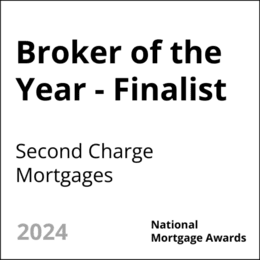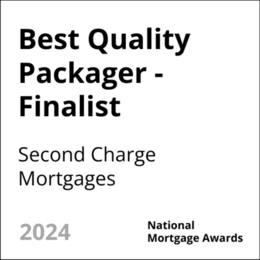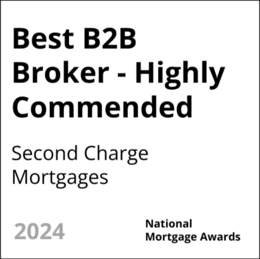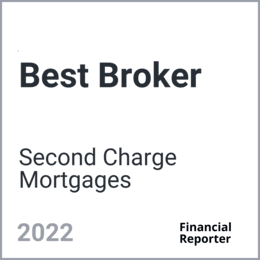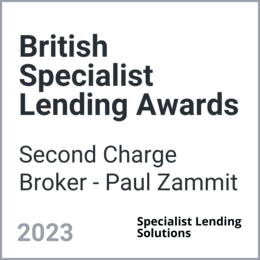Secured Loans
Borrow from £5,000 up to £1 million
- Fixed rates to help you budget
- Use the funds for any plans you have
- Borrow from £5,000 up to £1 million
- Get a fast response on whether we can help you
![]()
Loans are secured against property - your home may be repossessed if you do not keep up with repayments.
We do not offer mortgages from high street lenders, so you should apply there first. If you were rejected, we may be able to help you.
What is a secured loan?
A secured loan, also called a homeowner loan or second charge mortgage, allows you to borrow money by using your property as 'security' or 'collateral.'
By offering your property as security, lenders may feel more confident about repayment. This could make it easier to get approved, allow you to borrow more money, and potentially get a better interest rate compared to an unsecured personal loan.
However, keep in mind that if you don’t keep up with repayments, your home could be at risk. So, make sure the loan is affordable and fits your budget before you commit.
With nearly 40 years of experience, we may be able to find the right solution for you. If you’re ready to explore your options, fill out the enquiry form above or give us a call today to see if we can help.
What can a secured loan be used for?
You can use them for any purpose (as long as it’s legal)! Some of the most common uses are:
-

Struggling with multiple repayments? Debt consolidation can help by combining your debts into one monthly payment.
-

Need funds for home improvements? This option could help you access the funds needed and add value to your home.
-

Dream wedding:
Planning your dream wedding but need help with the costs? A secured wedding loan can help support your big day.
-

Education costs:
Facing high tuition fees or other education costs? This option can help cover those expenses.
Is a secured loan right for me?
It can be an option for many people, but whether it’s the right choice for you depends on your specific needs. Here are some situations where it might make sense:
- If you've been turned down for a loan elsewhere: If your financial situation is complex and you've been declined for other loans, this option could be easier to get. Lenders are often more flexible and may be willing to help, even if you're considered a higher risk.
- If remortgaging isn't the right option: If you’re thinking about remortgaging to raise extra funds, but are worried about high interest rates or early repayment charges, this could be a suitable alternative.
- If you're struggling to get the loan amount or terms you need: If you’re having trouble finding a loan with the right amount or repayment terms, this option may offer more flexibility. Lenders are often willing to offer larger sums and longer repayment periods.
Our secured loan lenders
How does a secured loan work?
It uses your home, or another property you own, as "security" for the money you borrow. It’s separate from your main mortgage, so it won’t change your current terms.
You’ll make monthly repayments, which cover both the loan and the interest. You and the lender will agree on how long you’ll repay the loan, and you’ll pay a certain amount each month until it’s paid off.
If you want to pay off the loan early, you can usually do so, but some lenders may impose an early repayment charge. Make sure to check for any fees before you sign anything.
The total amount you repay depends on the interest rate. It could be a fixed rate, where your payments stay the same, or a variable rate, which can change based on things like the Bank of England’s base rate.
Learn more in our blog on how does a secured loan work.
What are the interest rates for secured loans?
Lenders offer different rates, so it’s good to compare your options. We work with a range of secured loan lenders from across the market, so we can offer different rates to fit your needs.
The interest rate you’re offered can depend on several factors, including:
-
Property value: The higher your property value and the more equity you have in your home, the better the interest rate you may get. Lenders see it as less risky when they have more security (your property), which may lead to a lower rate.
-
Market conditions: Interest rates can also be impacted by changes in the mortgage market. For example, if the Bank of England’s base rate rises, rates are likely to increase too. Whereas, if the base rate falls, rates may decrease.
-
Credit history: While secured loans are generally seen as less risky because they’re backed by your property, your credit score still plays a role in the rate you’re offered. A higher credit score may help you get a lower interest rate.
What are the borrowing terms on secured loans?
Secured loan terms can vary, with both short and long repayment periods available.
If you choose a longer term, your monthly repayments will likely be lower, making it more affordable day-to-day. However, keep in mind that you may end up paying more interest overall.
On the other hand, shorter repayment periods usually mean less interest in total, but your monthly payments will be higher. It's important to make sure that you can comfortably manage the repayments, as your home could be at risk if you're unable to keep up with payments.
With options ranging from 3 to 30 years, we may be able to help you find a solution that fits your needs. Before you make your secured loan application, take some time to think about whether a shorter or longer term would be the best fit for you.
What are the differences between a secured and unsecured loan?
An unsecured loan doesn’t take a property or asset as security. If you miss payments, the lender can’t take your assets to recover the money.
Since there’s no security, these loans are riskier for lenders, so they may have higher interest rates. If you have a complex situation, it might be harder to get approved, but improving your credit score may help.
-
An unsecured loan doesn’t take a property or asset as security. If you miss payments, the lender can’t take your assets to recover the money.
Since there’s no security, these loans are riskier for lenders, so they may have higher interest rates. If you have a complex situation, it might be harder to get approved, but improving your credit score may help.
-
A secured loan uses an asset, usually your home, as security. If you fail to keep up with payments, the lender could repossess the asset, but they’ll typically try other solutions first.
Because there’s security for the lender, they are often more flexible and may be more willing to approve the loan.
How do I apply for a secured loan?
Applying is simple. You can begin the process by phone, or you can start to apply for secured loans online. Here’s an overview of how it works:
-

Step 1: Think about what you need
Before applying, take some time to consider how much you’d like to borrow and over what term.
-

Step 2: Get in touch
You can either call one of our experts to discuss your needs or fill in the online enquiry form, and we’ll call you.
-

Step 3: We’ll try to find a solution
Our advisors will work with you to try and find a suitable option from our panel of lenders.
-

Step 4: Make your decision
If we find a loan, our team will go over it with you. The final decision is yours. If you're happy, you can proceed to get your funds.
Why choose The Loans Engine?
- Competitive rates, to keep your monthly costs down;
- Quick lending decisions, so you can start your plans right away;
- Range of products, to try and find you a loan that meets your needs;
- A qualified advisor who will guide you through the process and handle the work for you.
Achievements & Awards
Useful guides and blogs
What our customers say about us
Frequently Asked Questions - Secured Loans
-
Will you compare secured loans for me?
We have a team of fully qualified and trained advisors who will complete a fact find, source and recommend a product to you based on your needs. They will compare all available products from across the market that are suitable and affordable.
-
How fast can I get my loan?
We can complete some applications as quickly as 5 working days after receiving all documents. However, other applications may take up to 4 weeks. It all depends on the complexity of the application.
Read our blog on how long does it take to get a secured loan for more details.
-
Can I apply for a secured loan if I do not have a perfect credit history?
Yes, we have products for most credit profiles. So, if you have missed payments, CCJs or defaults on your file, we may be able to help you.
However, the APRC you are eligible for depends on your individual circumstances. Lenders may charge a higher rate of interest if you have a bad or poor credit history.
-
Can I apply if I am self-employed?
Yes, but you will need to have been self-employed for at least 2 years.
To prove that you can afford this option, we would need you to provide either an accountant’s certificate or SA302 / tax calculations from the Inland Revenue.
Interest rates may be higher and there may be fewer options, as some lenders may consider it to be more risky.
Find out more in our blog 'can you get a secured loan if you’re self-employed?'.
-
What happens if I don’t pay off my secured loan?
If you don’t meet your monthly repayments, your lender is legally allowed to repossess the property you used as security.
However, most lenders will do their best to help you avoid this situation. Therefore, if you are having difficulties, it is important to speak to your lender as soon as possible, so they can try to help you. In some cases, they may be able to arrange repayment plans or even a repayment holiday.
As well as your property being at risk, it can also harm your credit score.
-
What are the benefits and risks of a loan against property?
There are several benefits and risks that come with borrowing against your home. Some of the benefits can include:
- You can borrow a larger amount of money compared to some other finance solutions.
- Lenders are often more relaxed with their criteria, so you may have a better chance of being accepted.
- Repayments can be spread over longer terms, which may be more suitable for you.
However, there are also some risks that should be considered. These are:
- If you do not make your repayments, your house could be at risk of repossession.
- There is a chance that you could harm your credit score if you do not keep up with your repayments.
- Spreading repayments over a longer term could increase the amount of interest you have to pay overall.
-
Are secured loans for homeowners only?
Typically, these solutions are for homeowners only. The way this option works is that they take a property that you own as "security" or "collateral". It doesn’t matter if the property is a residential home or a buy to let; there are options for both types. However, if you're using a rental property, you'll need to get a buy to let secured loan, as the requirements may differ, and there could be different lenders to choose from.
There may be some providers who are willing to accept other assets. However, most lenders will need a property.
-
How should I manage my secured loan?
Ensuring timely and complete payments is essential to successfully manage your loan. This will prevent the risk of you losing your home and will ensure your credit score is not negatively impacted.
-
Can secured loans be written off?
Unfortunately, it is unlikely that your lender would write off the loan. However, if you are having problems meeting repayments they may be able to support you and come up with an alternative repayment plan.


















